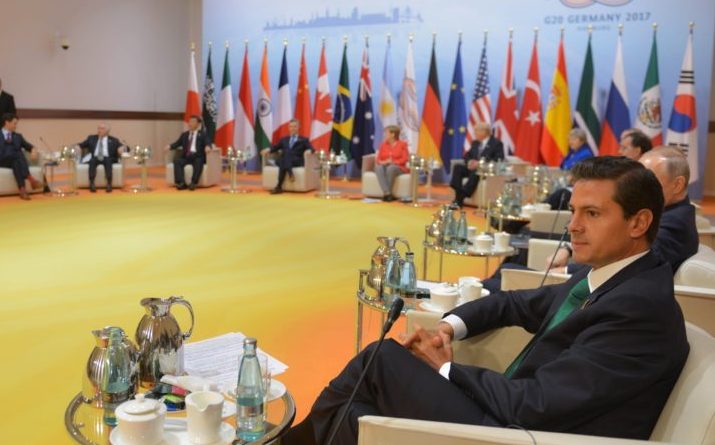Climate Change at the G20
Photo by
Article by Monishaa Suresh
This past weekend at the Group of 20 (G20) summit meeting in Hamburg, Germany, President Trump met with other world leaders to discuss pressing global issues. The Group of 20 is not an organization, but rather an informal forum of the leaders of 19 nations and the European Union. The G20 accounts for over 80% of the world’s GDP, 75% of global trade and about 66% of the world’s population.[1] In Hamburg this weekend, world leaders discussed one of the most pressing issues of our time: climate change. Having acknowledged President Trump’s recent withdrawal from the Paris accord and the decision to “immediately cease” efforts started under the Obama administration to curb greenhouse gas emissions, the other 19 members of the group adopted the “G20 Hamburg Climate and Energy Action Plan for Growth.”
One of the most important aspects of the new plan is the implementation of Nationally Determined Contributions (NDCs), which vary by nation but overall are guided by the commitments made by the Paris agreements. Although the specific parameters of each country’s NDCs are not defined and these parameters will vary by nation, the NDCs provide increased cooperation with one another and with non-G20 countries to “facilitate mutual learning, good practice sharing” and as the issue of climate change is international, the sum of the countries’ NDCs will lead to overall global impact.
However, the document still recognizes that the United States maintains a controversial stance on climate change with its footnote stating, “The United States is currently in the process of reviewing many of its policies related to climate change and continues to reserve its position on this document and its contents.”[2] The adoption of the new Plan marked the end of intense negotiations on how to “characterize the world’s response” to the United States’ Paris withdrawal.[3]
In the Leaders’ declaration at the close of the summit, it was recognized that the United States “will immediately crease the implementation of its current nationally-determined contribution.” However, like all other nations in the G20, the United States still had some form of NDCs on the topic of climate change as it would continue to “endeavor to work closely with other countries to help them access and use fossil fuels more cleanly and efficiently and help deploy renewable and other clean energy sources, given the importance of energy access and security in their nationally-determined contributions.”[4]
Works Cited
[1] “Questions and answers on the G20” G20 Germany 2017 https://www.g20.org/Webs/G20/EN/G20/FAQs/faq.html?nn=2186562#doc2180386bodyText1
[2] “G20 Hamburg Climate and Energy Action Plan for Growth” G20 Germany 2017 https://www.g20.org/Content/DE/_Anlagen/G7_G20/2017-g20-climate-and-energy-en.pdf?__blob=publicationFile&v=5
[3] Erlander, Steven et. al. “World Leaders Move Forward on Climate Change, Without U.S.” The New York Times (July 8, 2017) https://www.nytimes.com/2017/07/08/world/europe/group-of-20-climate-change-agreement.html
[4] “G20 Leaders’ Declaration” G20 Germany 2017 (July 7/8, 2017) https://www.g20.org/gipfeldokumente/G20-leaders-declaration.pdf

